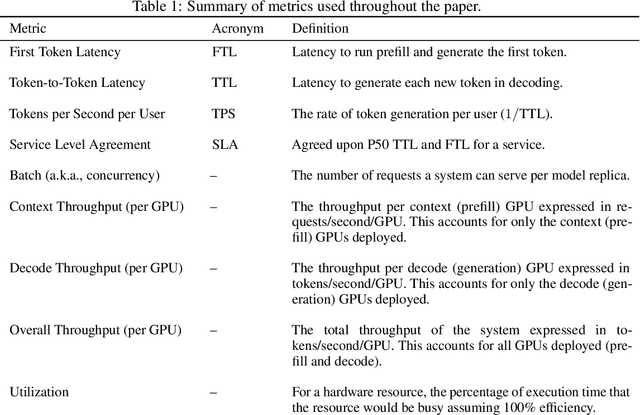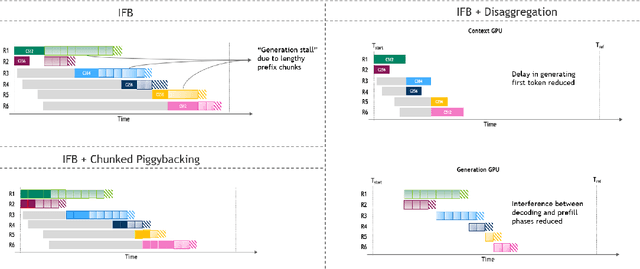Dharmesh Jani
Beyond the Buzz: A Pragmatic Take on Inference Disaggregation
Jun 05, 2025



Abstract:As inference scales to multi-node deployments, disaggregation - splitting inference into distinct phases - offers a promising path to improving the throughput-interactivity Pareto frontier. Despite growing enthusiasm and a surge of open-source efforts, practical deployment of disaggregated serving remains limited due to the complexity of the optimization search space and system-level coordination. In this paper, we present the first systematic study of disaggregated inference at scale, evaluating hundreds of thousands of design points across diverse workloads and hardware configurations. We find that disaggregation is most effective for prefill-heavy traffic patterns and larger models. Our results highlight the critical role of dynamic rate matching and elastic scaling in achieving Pareto-optimal performance. Our findings offer actionable insights for efficient disaggregated deployments to navigate the trade-off between system throughput and interactivity.
Microscaling Data Formats for Deep Learning
Oct 19, 2023



Abstract:Narrow bit-width data formats are key to reducing the computational and storage costs of modern deep learning applications. This paper evaluates Microscaling (MX) data formats that combine a per-block scaling factor with narrow floating-point and integer types for individual elements. MX formats balance the competing needs of hardware efficiency, model accuracy, and user friction. Empirical results on over two dozen benchmarks demonstrate practicality of MX data formats as a drop-in replacement for baseline FP32 for AI inference and training with low user friction. We also show the first instance of training generative language models at sub-8-bit weights, activations, and gradients with minimal accuracy loss and no modifications to the training recipe.
 Add to Chrome
Add to Chrome Add to Firefox
Add to Firefox Add to Edge
Add to Edge